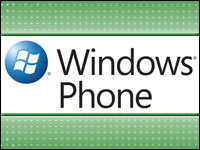
Sony BMG has filed a US$12 million lawsuit against the Amergence Group (formerly SunnComm), claiming that the company did not perform as expected in developing copyright protection software for music CDs.
The suit comes after Sony refunded millions of dollars to consumers who complained about digital rights management software on Sony BMG discs and the fact that it installed code on users’ computers without their knowledge or consent.
The most recently filed suit is based on profound confusion, Amergence Group Managing Director Peter Jacobs told the E-Commerce Times. The copyright protection software that has the “horrible rootkit solution” in it was not made by his company, he asserted.
Disastrous Development
The MediaMax software was developed for Sony “based on their specifications, their day-by-day instructions and access to our developers,” claimed Jacobs. When Sony merged with BMG, he said, the combined company “fast-tracked” another technology that did indeed employ the questionable rootkit coding and was widely distributed.
“Because both technologies came out of Sony, people get confused,” he said.
The only consumer objection to MediaMax code is the fact that it in some cases installed itself regardless of whether or not the consumer accepted the user agreement. That glitch, said Jacobs, has been fixed, along with a variety of other bugs not related to the rootkit issue.
That problem was not the subject of the class-action lawsuits against Sony over the digital rights management software called “XCP,” provided by First 4 Internet, argued Jacobs. However, the MediaMax user agreement issue was indeed brought to court by the Electronic Frontier Foundationin a lawsuit against Sony.
Joining the Groundswell
Privacy and anti-copy protection advocates have made a wide range of complaints about Sony’s CD software. One such claim is that the MediaMax software records and tracks the IP addresses of computers that load Sony CDs. This is patently untrue, said Jacobs.
Despite such claims, though, the software was indeed designed to prevent unauthorized copying of CDs. Now, the tide of public opinion seems to be toward the side of including no such locking software on CDs.
“There is a huge groundswell of anti-copyright protection people out there,” said Jacobs. “I’ve worked my way toward that position personally.”
In the meantime, lamented Jacobs, “our business model is on hold.” Jacobs’ company recently announced its acquisition of SonicMountain, owner of popular podcasting site Odeo.com.
As the lawsuits fly, discs with MediaMax software remain on retailer shelves and are being sold, claimed Jacobs. Those discs, he asserted, were never part of the Sony recall of music discs with questionable software.
























































Social Media
See all Social Media